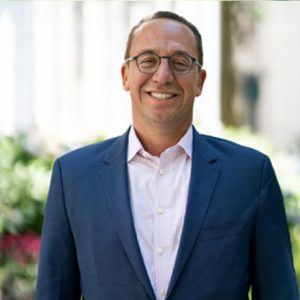Can You Sue for Childhood Trauma?
Posted on Monday, April 7th, 2025 at 7:43 pm
A Guide to Seeking Justice and Accountability
The echoes of childhood trauma can last a lifetime. For survivors of childhood sexual abuse, the path to healing is a deeply personal and often challenging journey. The abuse, a profound violation of trust and safety, can cast a long shadow, affecting mental health, relationships, and one’s sense of self for years, even decades.
Many survivors carry this weight in silence, hindered by the complex emotions of shame, fear, and confusion instilled by their abuser. You may have been told it was your fault. You may have been threatened into silence. You may simply have been too young to understand the gravity of what was happening.
Please know this: what happened to you was not your fault. The responsibility lies solely with the abuser and, in many cases, with the institutions that failed to protect you.
If you are reading this, you may be at a point in your healing journey where you are considering your legal options. The question, “Can I sue for childhood trauma?” is not just a legal inquiry—it’s a question about reclaiming power, demanding accountability, and seeking the resources you need to continue healing. The answer, in many cases, is yes. This guide is here to provide clarity and support as you explore what that path might look like for you. The New York sexual abuse attorneys at Hach Rose Schirripa & Cheverie LLP understand how complex and personal this decision can be, and we are here to walk with you through each step.
Understanding the Lifelong Impact of Childhood Trauma
 To understand the legal path forward, we must first honor the depth of the experience. Childhood sexual abuse is not a single event that ends and is forgotten. It is an act that fundamentally alters a child’s development and their perception of the world. The sense of safety is shattered, trust is broken, and the survivor is left to navigate a world that feels dangerous and unpredictable.
To understand the legal path forward, we must first honor the depth of the experience. Childhood sexual abuse is not a single event that ends and is forgotten. It is an act that fundamentally alters a child’s development and their perception of the world. The sense of safety is shattered, trust is broken, and the survivor is left to navigate a world that feels dangerous and unpredictable.
The long-term effects are extensive and can manifest in many ways, including:
- Post-Traumatic Stress Disorder (PTSD): This can involve flashbacks, nightmares, severe anxiety, and uncontrollable thoughts about the abuse.
- Depression and Anxiety: A persistent feeling of sadness, hopelessness, or constant worry can become a daily reality.
- Difficulty with Relationships: The betrayal of trust by an abuser, often someone in a position of authority, can make it incredibly difficult to form healthy, trusting bonds with others in adulthood.
- Issues with Self-Worth and Shame: Survivors often internalize blame, leading to chronic feelings of shame, guilt, and low self-esteem.
- Physical Symptoms: Chronic pain, fatigue, and other stress-related physical ailments are common among survivors.
For many, these feelings don’t surface or become clearly connected to the abuse until much later in life. A major life event, a new relationship, or the process of therapy can suddenly bring these repressed memories and emotions to the forefront. Children’s rights are at the core of these legal protections, and it is a testament to your strength that you are here, seeking answers, no matter how long it has been.
The Critical Role of Institutional Liability: Holding Power Accountable
When considering a lawsuit for childhood sexual abuse, it’s crucial to understand where accountability lies. While the individual who committed the abuse is directly responsible, the legal system recognizes that they often did not act in a vacuum. Many abusers used their positions within powerful institutions to gain access to and groom children.
This is why most successful childhood sexual abuse lawsuits are filed not just against the individual abuser, but against the institution that enabled or covered up the abuse.
Why is this so important? Institutions, such as churches, schools, and youth organizations, have a legal and moral “duty of care” to protect the children they serve. When they fail in that duty, they can be held legally and financially responsible. Holding these institutions accountable is not only about securing resources for your healing but also about forcing systemic change to protect future generations. For many survivors, institutional betrayal triggers depression, anxiety, and long-term psychological distress, compounding the original trauma.
Types of Institution Negligence
An institution may be held liable for:
- Negligent Hiring: Hiring an individual with a known history of misconduct or without conducting a proper background check.
- Negligent Supervision: Failing to adequately monitor employees, volunteers, and the children under their care, creating opportunities for abuse to occur.
- Failure to Report: Ignoring or dismissing complaints or suspicions of abuse instead of reporting them to the proper authorities as required by law.
- Creating a Culture of Secrecy: Fostering an environment where reporting abuse is discouraged, victims are not believed, and the reputation of the institution is prioritized over the safety of children.
- Cover-Ups and Concealment: Actively hiding evidence of abuse, moving an abuser to a new location to avoid scandal (often referred to as “passing the trash”), or intimidating survivors and their families into silence.
Types of Institutions
Let’s look at some specific examples of institutions that can be held liable:
- Schools and Educational Institutions
Schools are meant to be safe havens for learning and growth. When a teacher, administrator, or staff member abuses a student, the school district or private institution can be held responsible for failing to vet their staff, ignoring warning signs, or failing to act on reports from students or parents.
- Churches and Religious Organizations
For decades, many religious institutions have been at the center of abuse scandals. Clergy members, youth pastors, and lay volunteers have used their positions of immense spiritual authority to manipulate and abuse children. Lawsuits can hold dioceses, archdioceses, and other governing bodies accountable for knowingly protecting abusers, moving them from parish to parish, and creating policies that enabled abuse to flourish for generations.
- Youth Sports and Recreational Programs
Organizations like the Boy Scouts of America, Girl Scouts, summer camps, and local sports leagues have a profound duty to ensure child safety. Liability can arise from their failure to screen volunteers, enforce safety rules (like the “two-deep leadership” rule), or take action when allegations of misconduct by a coach or scout leader surface.
- Foster Care Agencies and Group Homes
Children in the foster care system are among the most vulnerable. The agencies and homes entrusted with their care can be held liable if they place a child in an abusive home, fail to properly investigate foster parents, or ignore a child’s reports of abuse.
Pursuing a claim against an institution sends a powerful message: protecting children must be the absolute priority. It forces these organizations to re-examine their policies, confront their past failures, and implement changes that will prevent others from suffering the same harm. These failures are often so hard to recognize in the moment because they’re masked by authority, tradition, or misplaced trust—but that doesn’t make them any less damaging.
Legal Timelines: Is It Too Late to File a Lawsuit?
One of the biggest fears for many survivors is that too much time has passed. For years, statutes of limitations—the legal time limits for filing a lawsuit—prevented adult survivors of childhood abuse from seeking justice.
However, lawmakers have begun to recognize the unique nature of this trauma, including the reality of delayed disclosure. In New York, landmark legislation has provided new avenues for justice, namely the Child Victims Act (CVA).
This law permanently extended the time limit for survivors to file civil lawsuits until their 55th birthday. It also created a temporary “lookback window” that allowed survivors of any age to file a claim, regardless of when the abuse occurred. While that window has closed, the extended statute of limitations remains.
Even outside of this specific act, the “discovery rule” can sometimes apply. This legal principle states that the clock on the statute of limitations may not start running until the survivor discovers—or reasonably should have discovered—the connection between their current emotional or psychological injuries and the past abuse.
The laws surrounding these timelines are complex. Do not assume it is too late. The most important step you can take is to speak with a New York sexual abuse attorneys who focuses specifically on sexual abuse cases. They can evaluate the details of your situation and explain your options with clarity and compassion.
The Legal Process: A Step-by-Step Guide for Survivors

The thought of a lawsuit can be intimidating. Remember, you are not on this journey alone. A dedicated legal team will guide you, protect you, and handle the heavy lifting, allowing you to focus on your well-being. Seeking justice for survivors isn’t just about the legal outcome—it’s about reclaiming your voice, your power, and your future. Here is what the process typically looks like:
Step 1: The Initial Consultation (A Safe Space to Share)
Your first step is to speak with an attorney. This consultation is always free, completely confidential, and carries no obligation. It is simply an opportunity for you to share your story in a safe and supportive environment. The attorney will listen with empathy, ask gentle questions to understand the situation, and help you identify the potential liable parties. This is your chance to ask questions and see if you feel comfortable and trusted.
Step 2: The Investigation (Building Your Case)
If you decide to move forward, your legal team will begin a thorough and discreet investigation. You will not be asked to do this work yourself. Their job is to gather evidence to support your claim, which may include:
- Collecting school records, employment files, or church documents.
- Identifying and interviewing potential witnesses.
- Uncovering any history of similar complaints against the abuser or the institution.
- Working with experts, such as psychologists, who can speak to the long-term impact of the trauma.
Your privacy is paramount. In many cases, lawsuits can be filed anonymously (as “Jane Doe” or “John Doe”) to protect your identity throughout the process.
Step 3: Filing the Lawsuit (Demanding Accountability)
Once the investigation has built a strong foundation, your attorney will file a formal complaint in court. This document officially begins the lawsuit. It names the defendants (the institution and/or the abuser) and outlines the legal basis for your claim. This is a powerful moment; it is the official start of holding them accountable in a public record. New York continues to accept claims under the extended statute of limitations, giving survivors the opportunity to come forward when they are ready.
Step 4: The Discovery Phase (Uncovering the Truth)
Discovery is the longest phase of a lawsuit, where both sides exchange information. This can be an emotionally challenging part of the process, as it may involve a deposition, where you provide sworn testimony. Your New York sexual abuse attorneys will be by your side every step of the way, preparing you, protecting you, and ensuring you are treated with respect. The goal of discovery is to uncover the full truth, including any evidence of institutional cover-ups or patterns of abuse.
Step 5: Settlement Negotiations or Trial (Finding Resolution)
The vast majority of childhood sexual abuse cases are resolved through a settlement. A settlement is a negotiated agreement where the institution provides financial compensation in exchange for the lawsuit being withdrawn. This allows you to receive compensation and closure without the emotional strain of a public trial. Your attorney will handle all negotiations and advise you on any offers, but the final decision to accept a settlement is always yours.
If the institution refuses to offer a fair settlement, your legal team must be prepared to take your case to trial. While a trial can be difficult, for some survivors, it is an empowering experience to tell their story in a courtroom and have a jury validate their truth.
What Does Justice Look Like? Compensation as a Tool for Healing
No amount of money can ever erase the past or undo the harm you have endured. But compensation from a civil lawsuit can be a powerful tool for your healing and future. It can provide the resources and security you need to rebuild your life on your own terms.
Compensation can cover:
- Costs of Therapy and Medical Care: Both past and future expenses for trauma-informed therapy, counseling, and any related medical treatment.
- Lost Income and Earning Capacity: If the trauma has impacted your ability to work, advance in your career, or maintain employment.
- Pain and Suffering: Compensation for the profound emotional and psychological anguish you have endured, including PTSD, depression, and anxiety.
- Loss of Enjoyment of Life: Acknowledging how the trauma has affected your ability to form relationships, trust others, and experience joy.
In cases of extreme negligence or malicious cover-ups by an institution, a court may also award punitive damages. These are intended not to compensate you, but to punish the institution and deter them from ever allowing such failures to happen again.
Compassionate Legal Support from Hach Rose Schirripa & Cheverie LLP
 Making the decision to explore legal action is a courageous act of self-advocacy. It is a declaration that your story matters, your pain is real, and those who caused it should be held responsible. The journey to justice is a path toward reclaiming your narrative and stepping into a future defined not by what happened to you but by your own strength and resilience.
Making the decision to explore legal action is a courageous act of self-advocacy. It is a declaration that your story matters, your pain is real, and those who caused it should be held responsible. The journey to justice is a path toward reclaiming your narrative and stepping into a future defined not by what happened to you but by your own strength and resilience.
At Hach Rose Schirripa & Cheverie LLP, our firm is built on a single, unwavering mission: to provide dedicated, compassionate, and powerful legal representation exclusively for survivors of sexual abuse. We understand the courage it takes to come forward, and we are committed to creating a safe and supportive space where you can explore your options without pressure or judgment.
Our entire practice is focused on holding institutions accountable for their failures and securing justice and compensation for survivors. We have the experience, resources, and resolve to stand up to powerful organizations and fight for you every step of the way.
Your story is important. Your voice deserves to be heard. If you are a survivor of childhood sexual abuse and are ready to learn more about your legal rights, we are here to listen. Contact our New York sexual abuse attorneys today at (212) 779-0057 or through our online form for a FREE and completely confidential consultation. Let us help you take the first step on your path to justice.